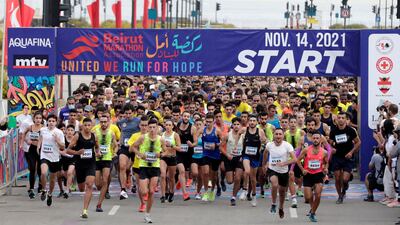Most policymakers and pundits are confounded by what to do about Lebanon. They ask: "What do the Lebanese people want? How strong is the hold that the sectarian elites and Hezbollah, the Iranian proxy, have over the population? And is change even possible in Lebanon?"
In an effort to answer these questions, the American Task Force on Lebanon and Zogby Research Services conducted a nationwide poll of 859 Lebanese citizens in September. Broadly speaking, the poll was constituted to assess their current situation and to identify their political priorities and their hopes for the future.
The findings are both instructive and fascinating.
There are, for example, multiple areas where a consensus on critical issues exists from every demographic and religious sub-group. And despite the extreme hardships, for a strong majority, next year's parliamentary election presents a make-or-break moment for the future of their country. What comes through clearly from the findings is the profound impact the economic collapse is having across the country.
Nine in 10 respondents said that they are worse off now than they had been just five years earlier. More than eight in 10 said they have experienced shortages in fuel, electricity and drinking water. For one third of respondents, there are occasions when they have been forced to go without food. Among the poorest Lebanese, one in five said they "very often go without meals". And almost two thirds reported that they do not have enough income to make ends meet. As a result, a disturbing two thirds conceded that, if given the opportunity, they would emigrate to another country.
These figures are hardly surprising, given that the country has been through much political turmoil over the past few years that has led to the economic hardships its people are currently facing.
However, despite these hardships, people retain confidence in some of their country's institutions. Scoring high among all religious sects and demographic sub-groups are the Lebanese Armed Forces, civil society, the religious leadership, judiciary and what has come to be known as the 17 October Revolution, the national protests in 2019 that were triggered by planned taxes on gasoline, tobacco and VoIP calls on applications such as WhatsApp.
Attitudes towards Hezbollah are divided, leaning negative, and confidence in Parliament and in the traditional parties are low. On the issue of Hezbollah, it is striking that two thirds of all Lebanese, including a majority of respondents from every religious sect, expressed the belief that their weapons and forces should not be allowed to operate independent of the state and, instead, should be under the control of the armed forces.


It is important to note that despite their desperate situation, people are looking forward to next year's election. Three in five respondents say that they believe that the "elections will bring the political change Lebanon needs", with two thirds expressing their intention to vote for the "new alternative parties". On the other hand, only one in five say that they would vote for the traditional parties.
What people want from their government also comes through clearly in the survey results. When asked to identify the number one issue facing the country, far and away, "ending corruption" was the top-rated priority followed by education, health care and employment. A substantial majority also said they want to see an end to the Taif formula of sectarian governance.
When asked to provide their primary source of personal identity, eight in 10 respondents said “Lebanese", while fewer than one in 10 said their "sect" provides their primary identification. And, most significantly, 97 per cent of respondents said that it is important that there be "a full investigation of and accountability for the explosion in the Beirut Port".
These are only a few topline results from the poll, which the remainder of the findings serve to accentuate.

In summation, the people are hurting from the economic collapse. They are fed up with an ossified and broken sectarian political system that they want to see changed, and they want an end to government corruption. Hezbollah needs to be reined in and brought under the control of the state. The government needs to be held accountable for its failings – in particular the devastating explosion in the port. Despite all their frustrations, they have their hopes pinned on the belief that next year's election will bring much-needed change.
It is vital when speaking about Lebanon that these areas of consensus be factored into any discussion about the future of the country. For years now, Lebanon has been said to be at the breaking point.
One can only conclude that, if the 2022 vote does not happen because the sectarian elites or Hezbollah sense that they pose a risk to their control, or if the elections are not free and fair, or if the country's sectarian electoral system brings the same old traditional elites back into power, then the hopes of the Lebanese people will be shattered.
At which point, the country will go from the breaking point to being broken.







